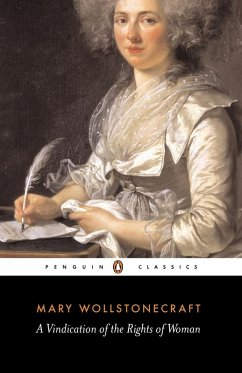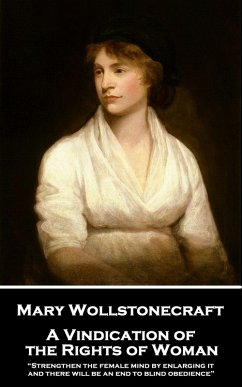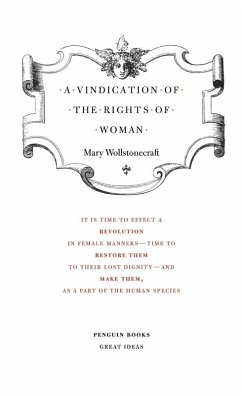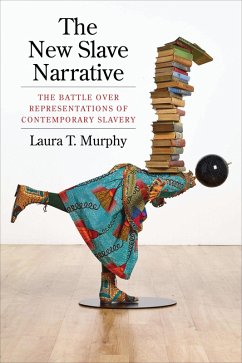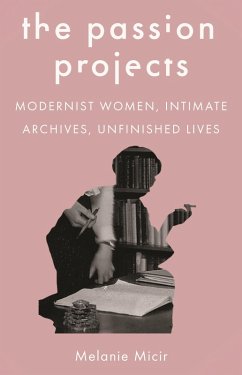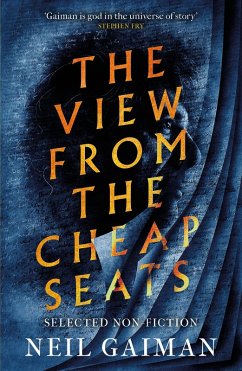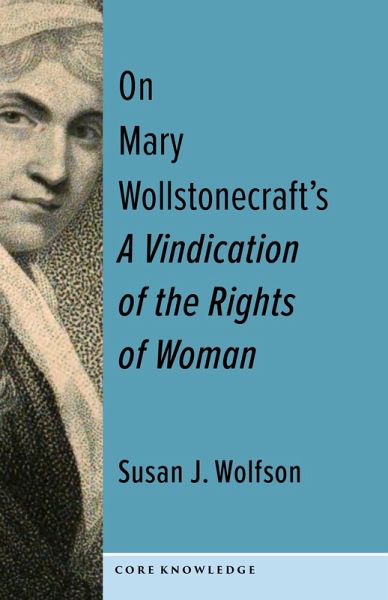
On Mary Wollstonecraft's A Vindication of the Rights of Woman (eBook, ePUB)
The First of a New Genus

PAYBACK Punkte
5 °P sammeln!
Mary Wollstonecraft's A Vindication of the Rights of Woman (1792) made a pioneering and durably influential argument for women's equality. Emerging from the turbulent decade of the French Revolution, her vindication delivered a systematic critique of the treatment of women across time and place. Drawing on extensive experience teaching and writing about Wollstonecraft, Susan J. Wolfson offers new insight into how Wollstonecraft's particular methods, style, and energy make this case for her readers.Wolfson places this polemic in its political and literary contexts and in relation to Wollstonecr...
Mary Wollstonecraft's A Vindication of the Rights of Woman (1792) made a pioneering and durably influential argument for women's equality. Emerging from the turbulent decade of the French Revolution, her vindication delivered a systematic critique of the treatment of women across time and place. Drawing on extensive experience teaching and writing about Wollstonecraft, Susan J. Wolfson offers new insight into how Wollstonecraft's particular methods, style, and energy make this case for her readers.
Wolfson places this polemic in its political and literary contexts and in relation to Wollstonecraft's other works about political rights. She considers how Wollstonecraft balanced advocacy for the seemingly universal ideals of the French Revolution with analysis of the gendered exclusions in the vaunted rights of "man." This book pays particular attention to Wollstonecraft's literary craft, highlighting the force of her close reading. Wollstonecraft pinpointed the role of gendered phrases and concepts in political discourse, both in her opponents' metaphors and received ideas and in her own efforts to craft a new political language with which to defend women's capabilities. Wolfson reveals her as a pioneer in decoupling sex from gender and shows how she provided an enduring model of how to be a female intellectual. Sharing the excitement of reading Wollstonecraft's work with care for her literary as well as political genius, this book provides fresh perspectives both for first-time readers and those seeking a nuanced appreciation of her achievements.
Wolfson places this polemic in its political and literary contexts and in relation to Wollstonecraft's other works about political rights. She considers how Wollstonecraft balanced advocacy for the seemingly universal ideals of the French Revolution with analysis of the gendered exclusions in the vaunted rights of "man." This book pays particular attention to Wollstonecraft's literary craft, highlighting the force of her close reading. Wollstonecraft pinpointed the role of gendered phrases and concepts in political discourse, both in her opponents' metaphors and received ideas and in her own efforts to craft a new political language with which to defend women's capabilities. Wolfson reveals her as a pioneer in decoupling sex from gender and shows how she provided an enduring model of how to be a female intellectual. Sharing the excitement of reading Wollstonecraft's work with care for her literary as well as political genius, this book provides fresh perspectives both for first-time readers and those seeking a nuanced appreciation of her achievements.
Dieser Download kann aus rechtlichen Gründen nur mit Rechnungsadresse in A, D ausgeliefert werden.




